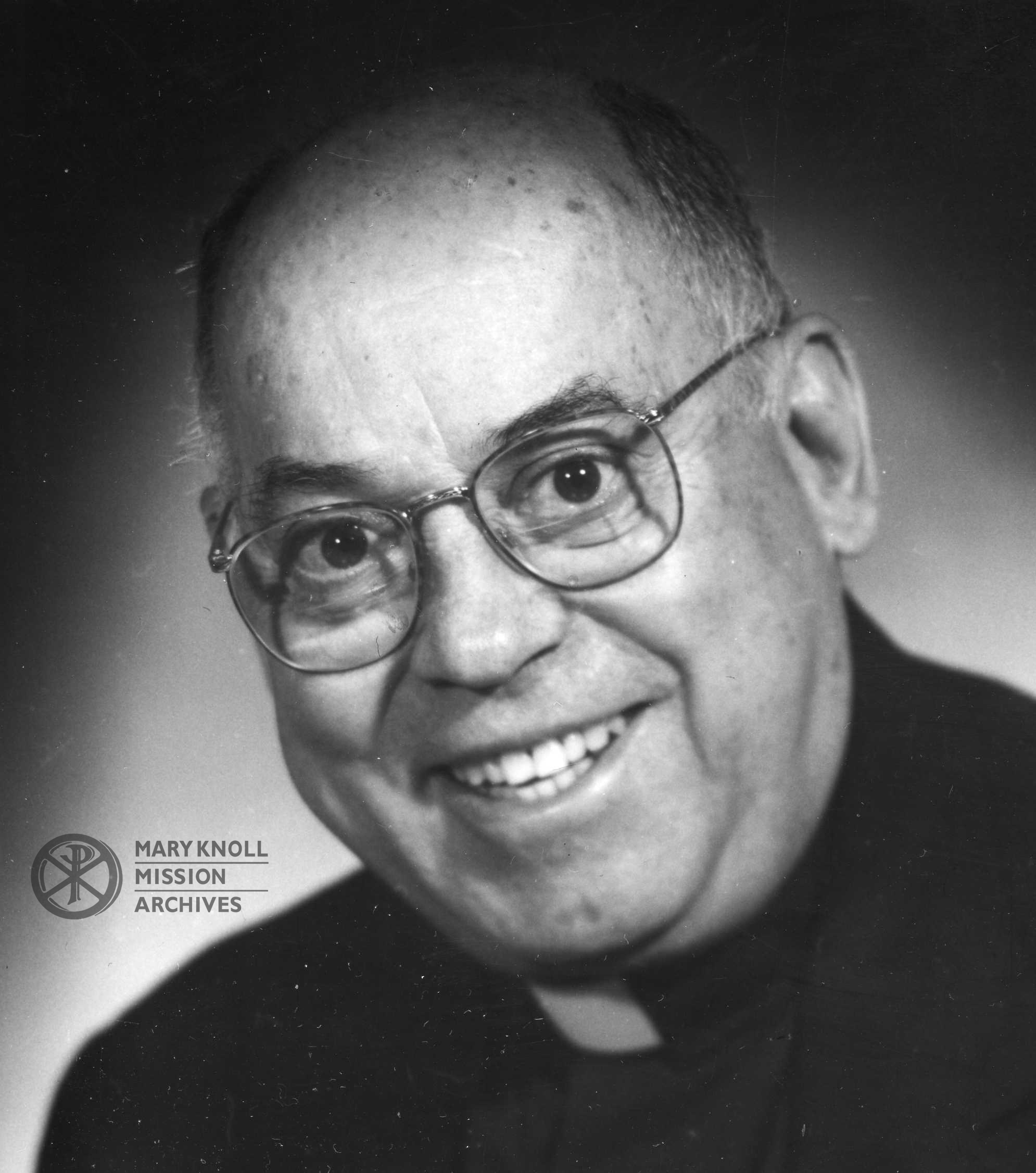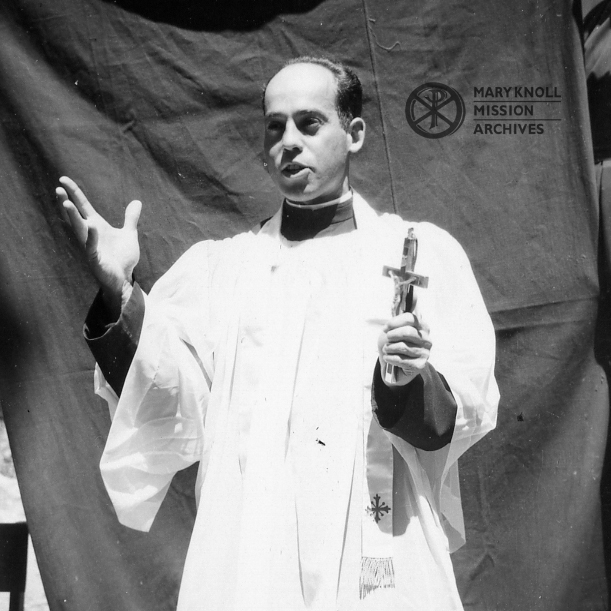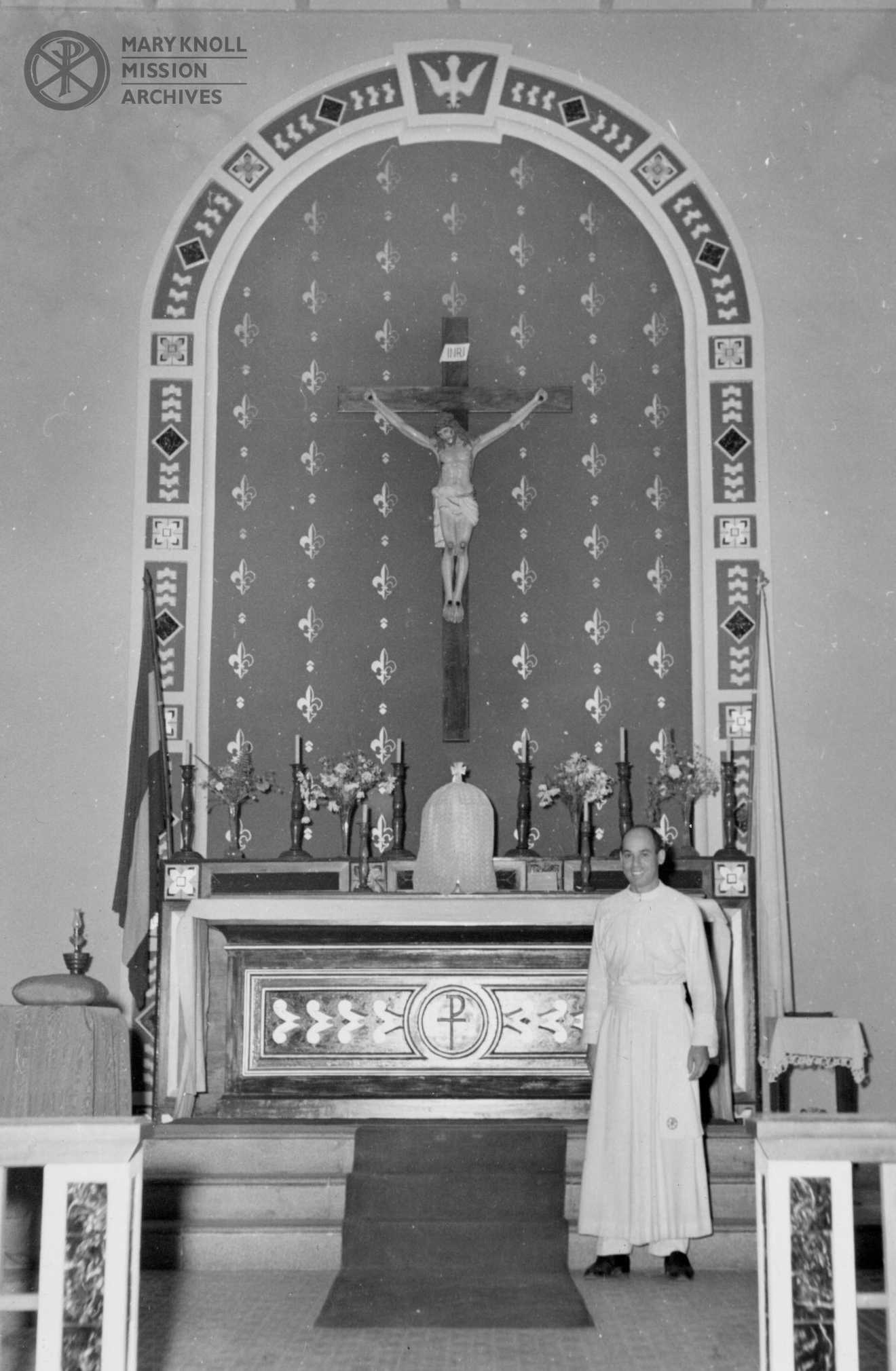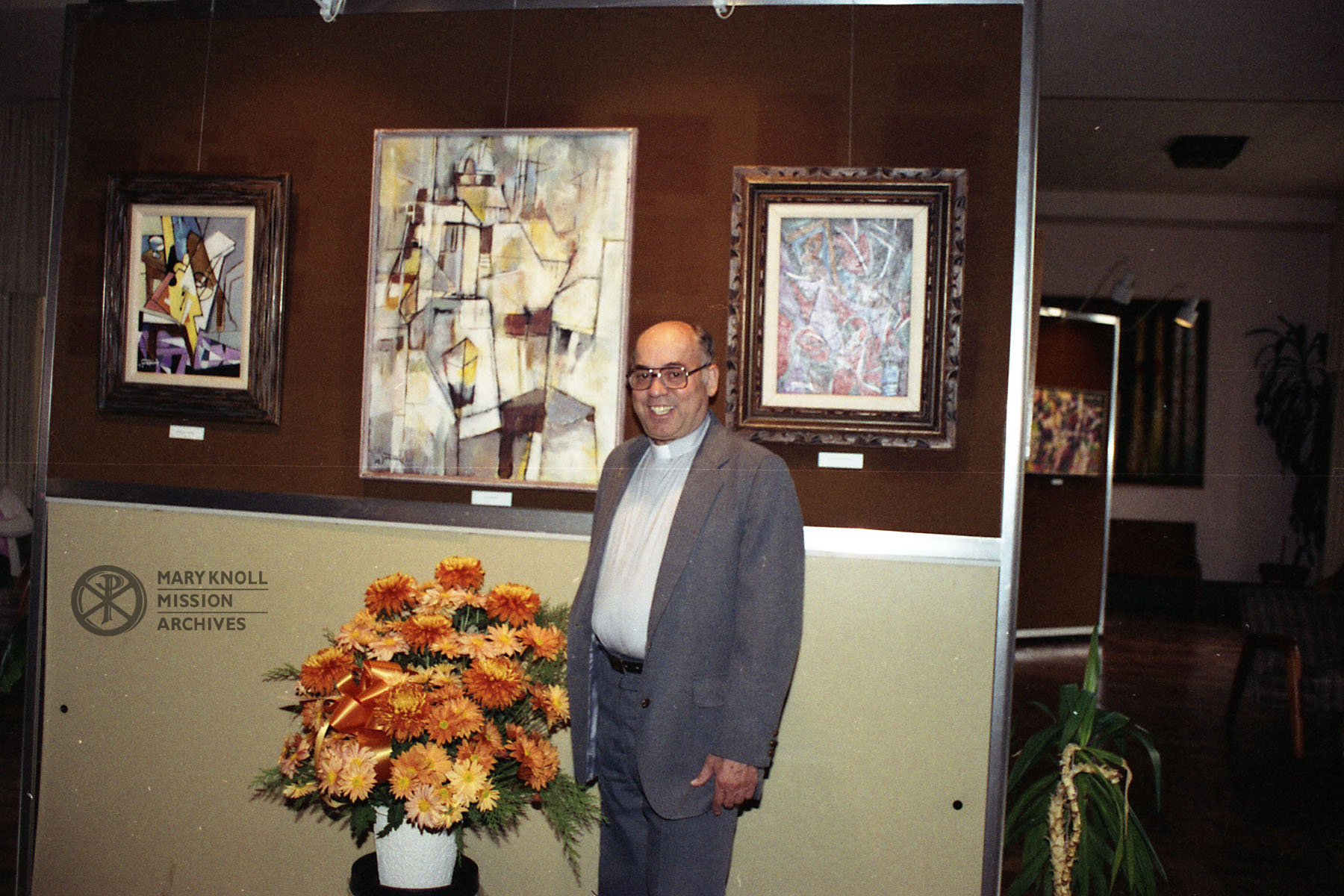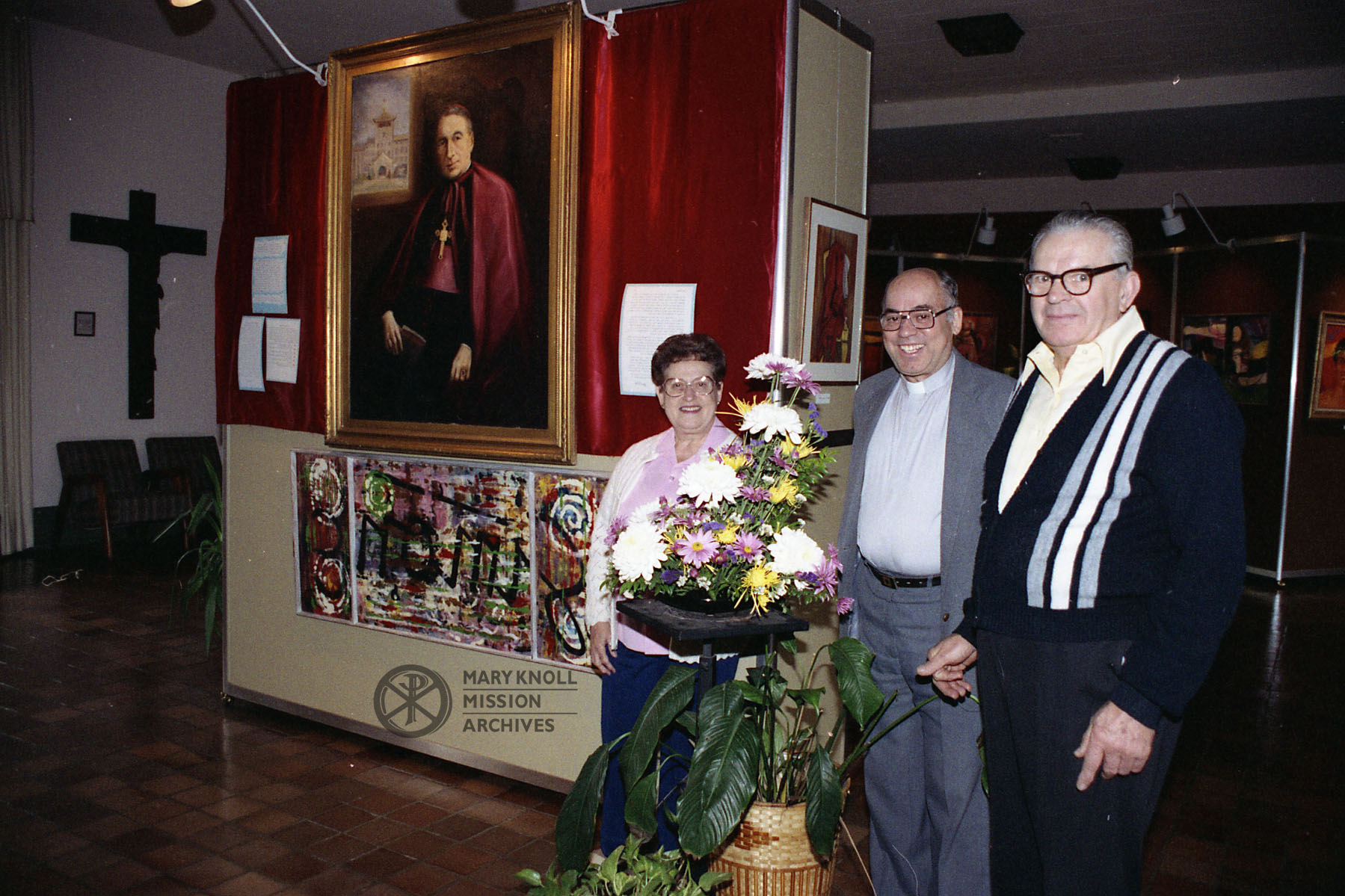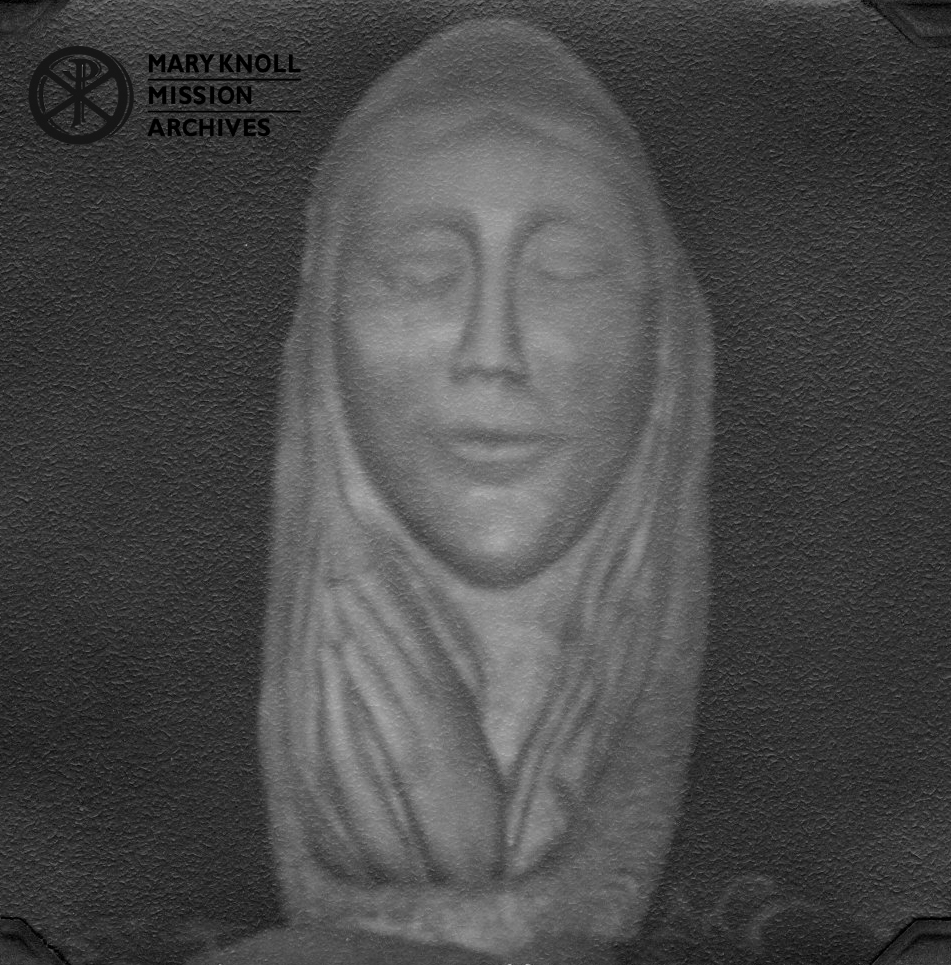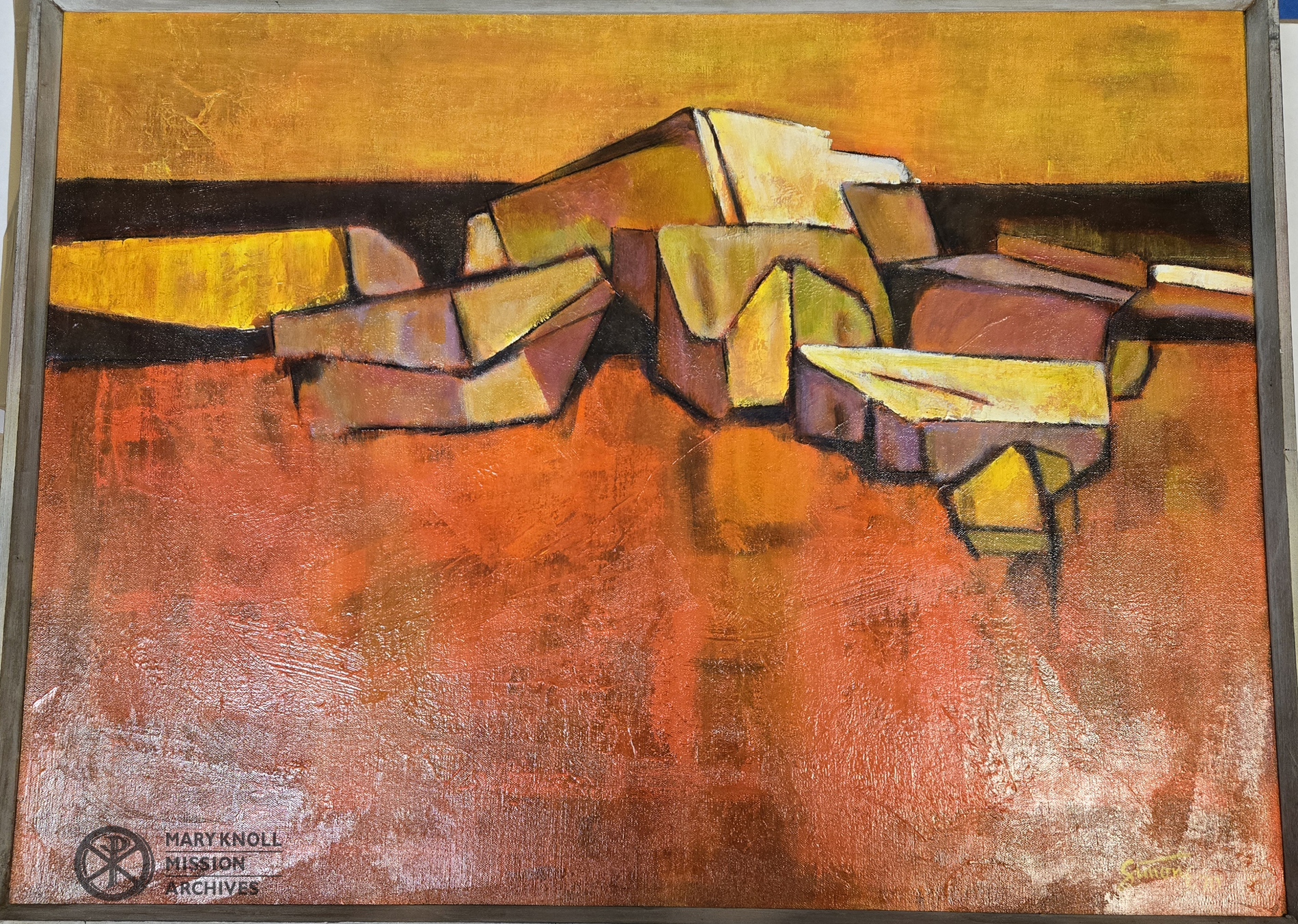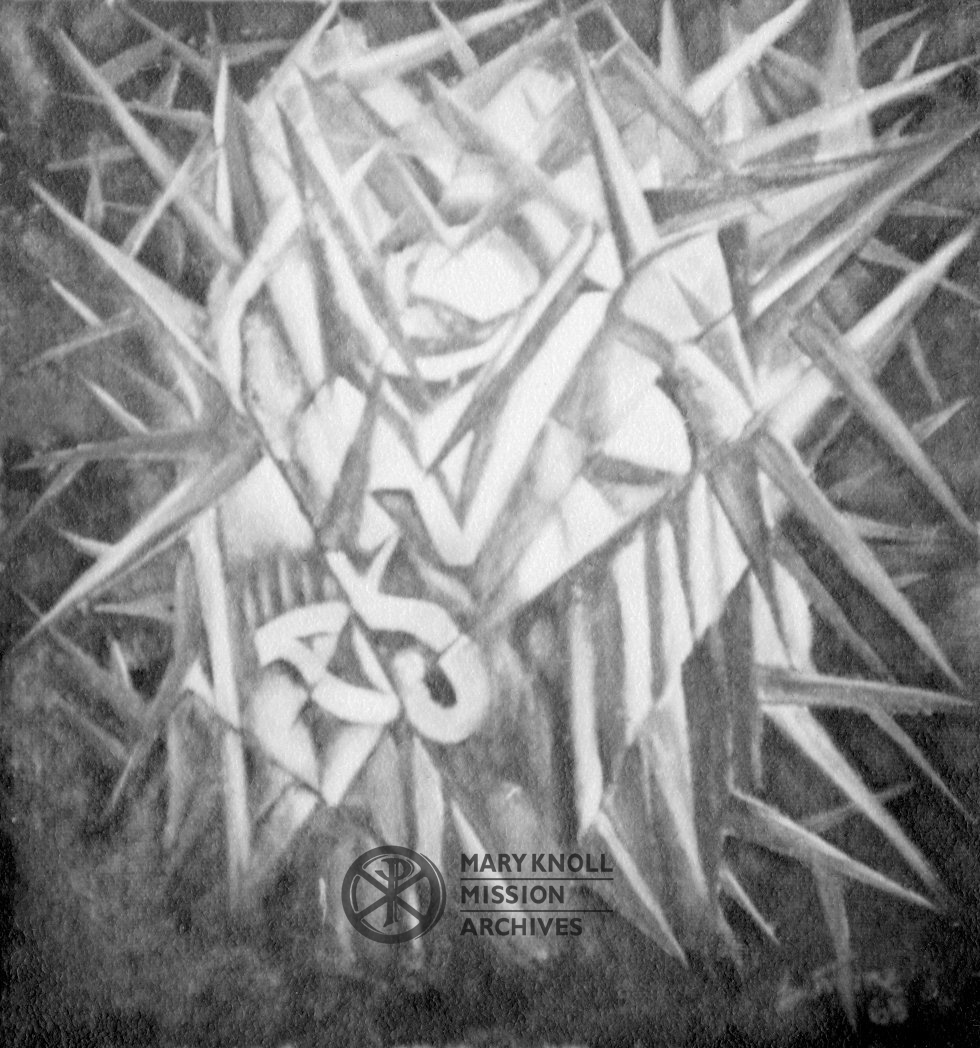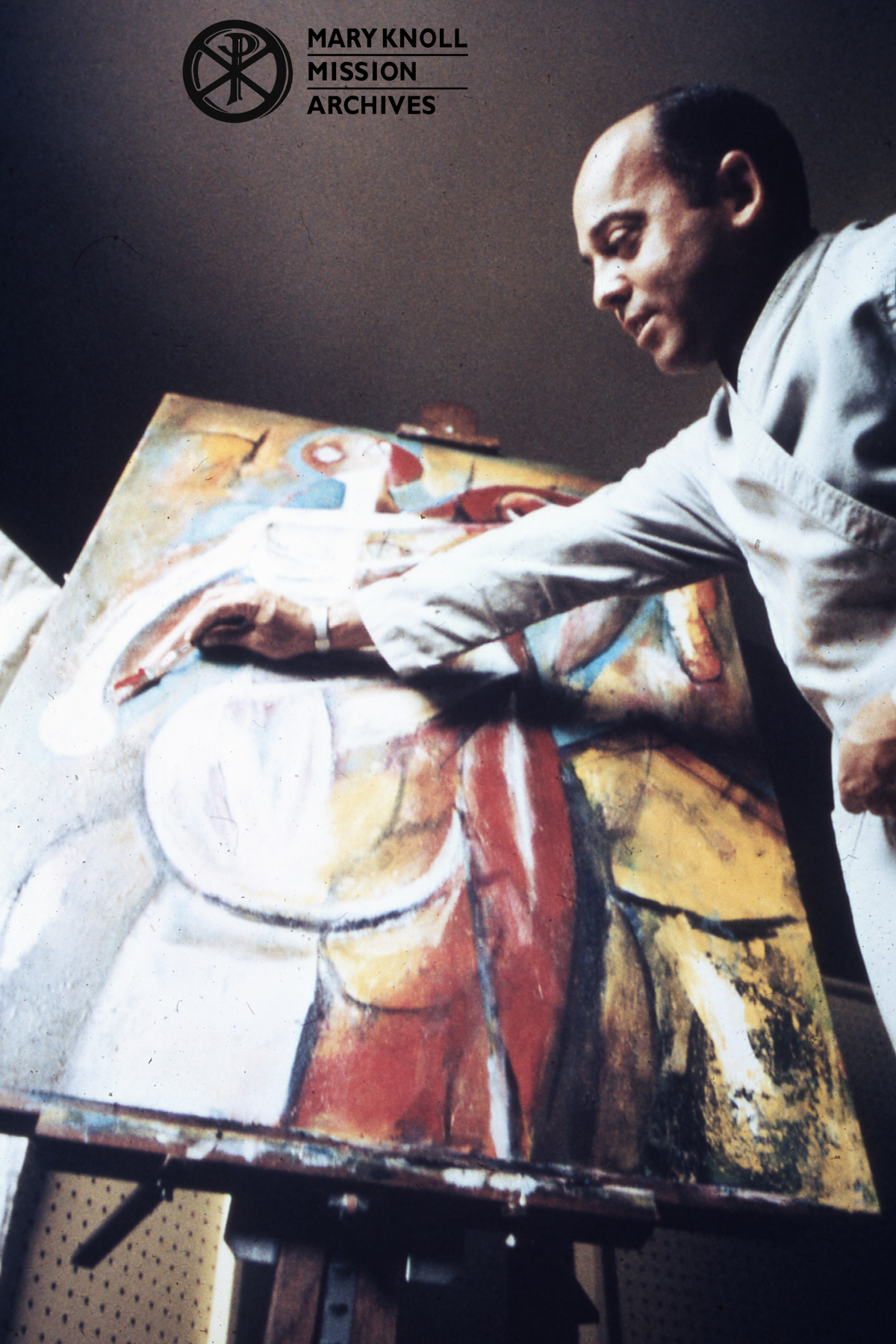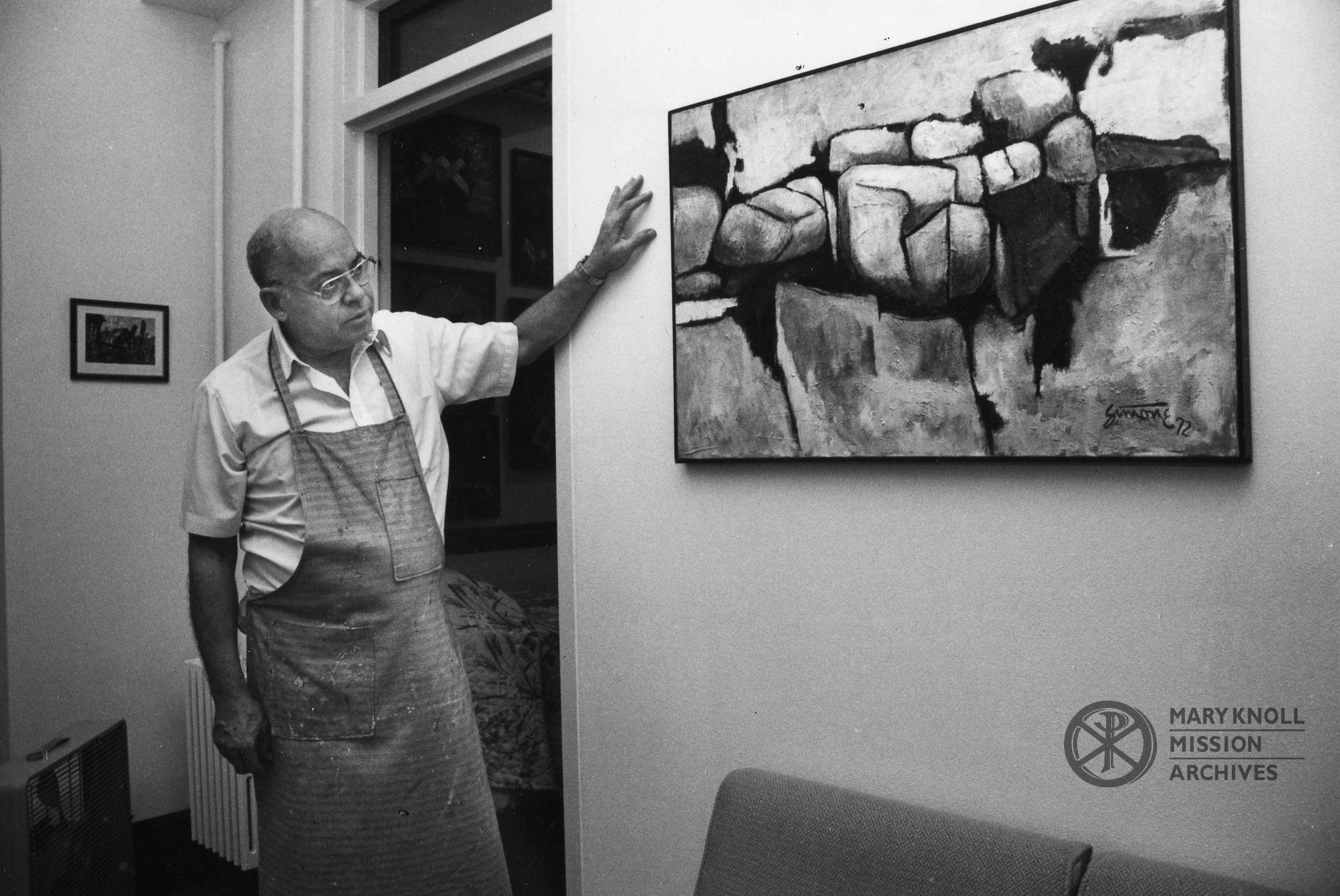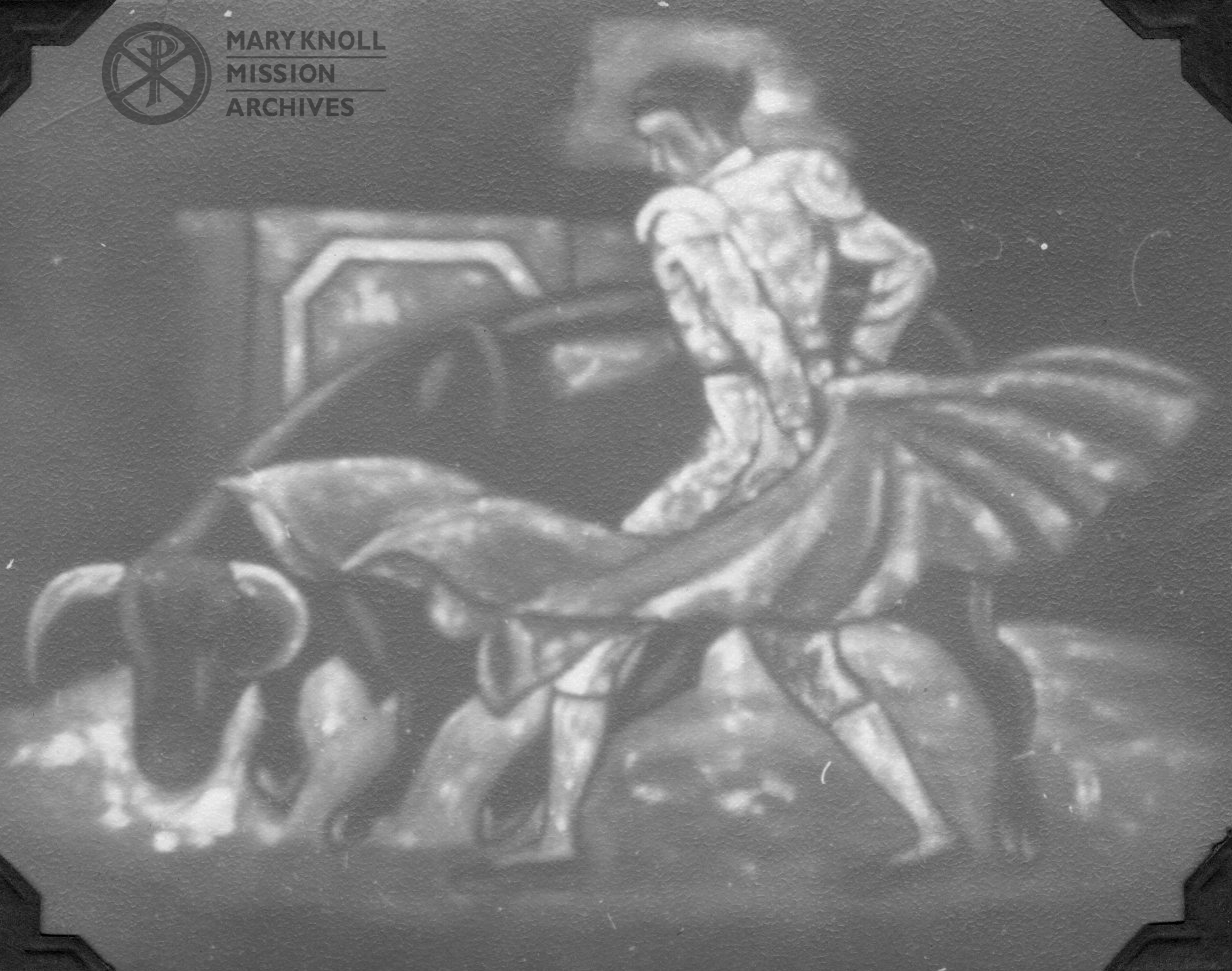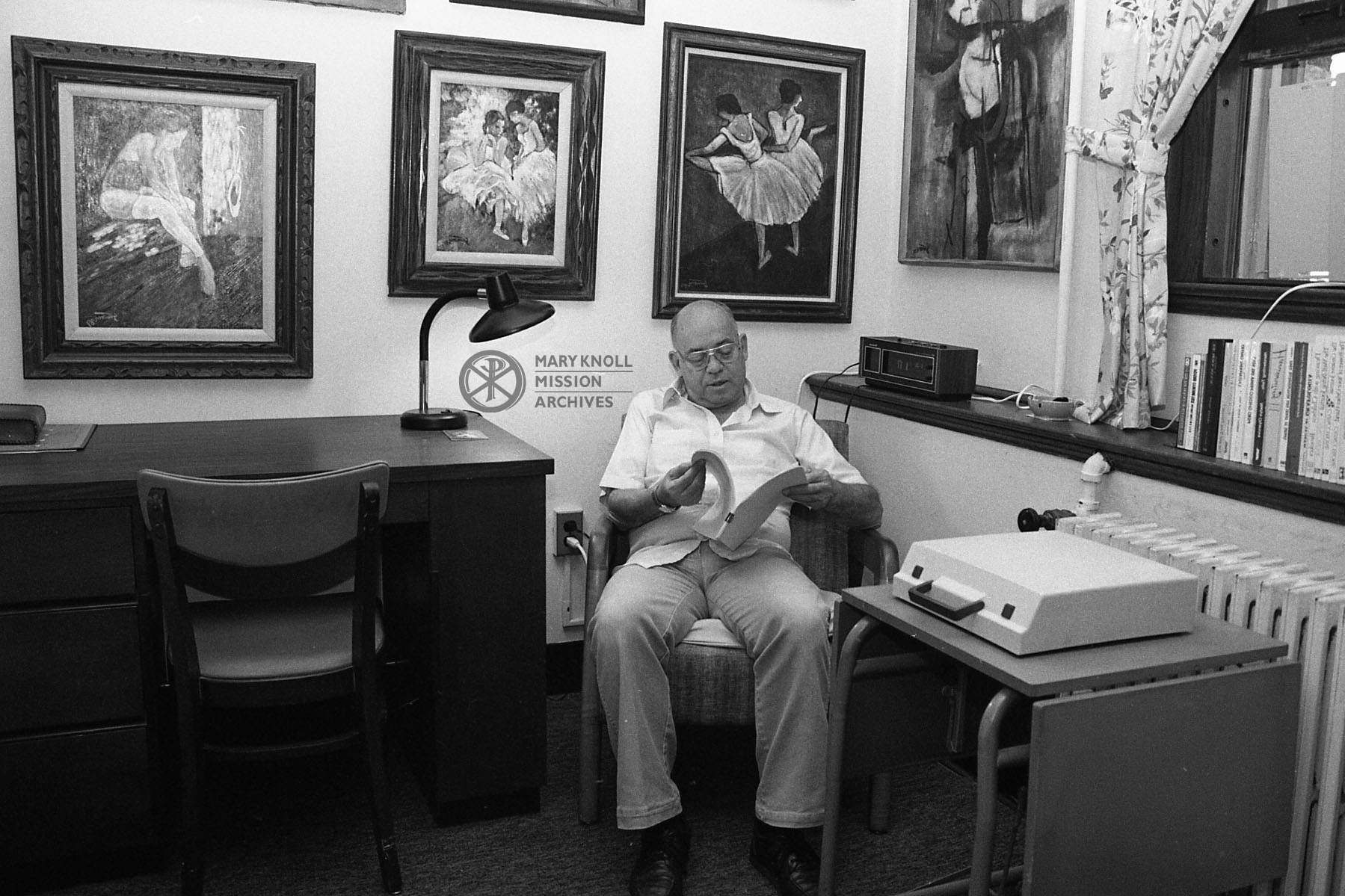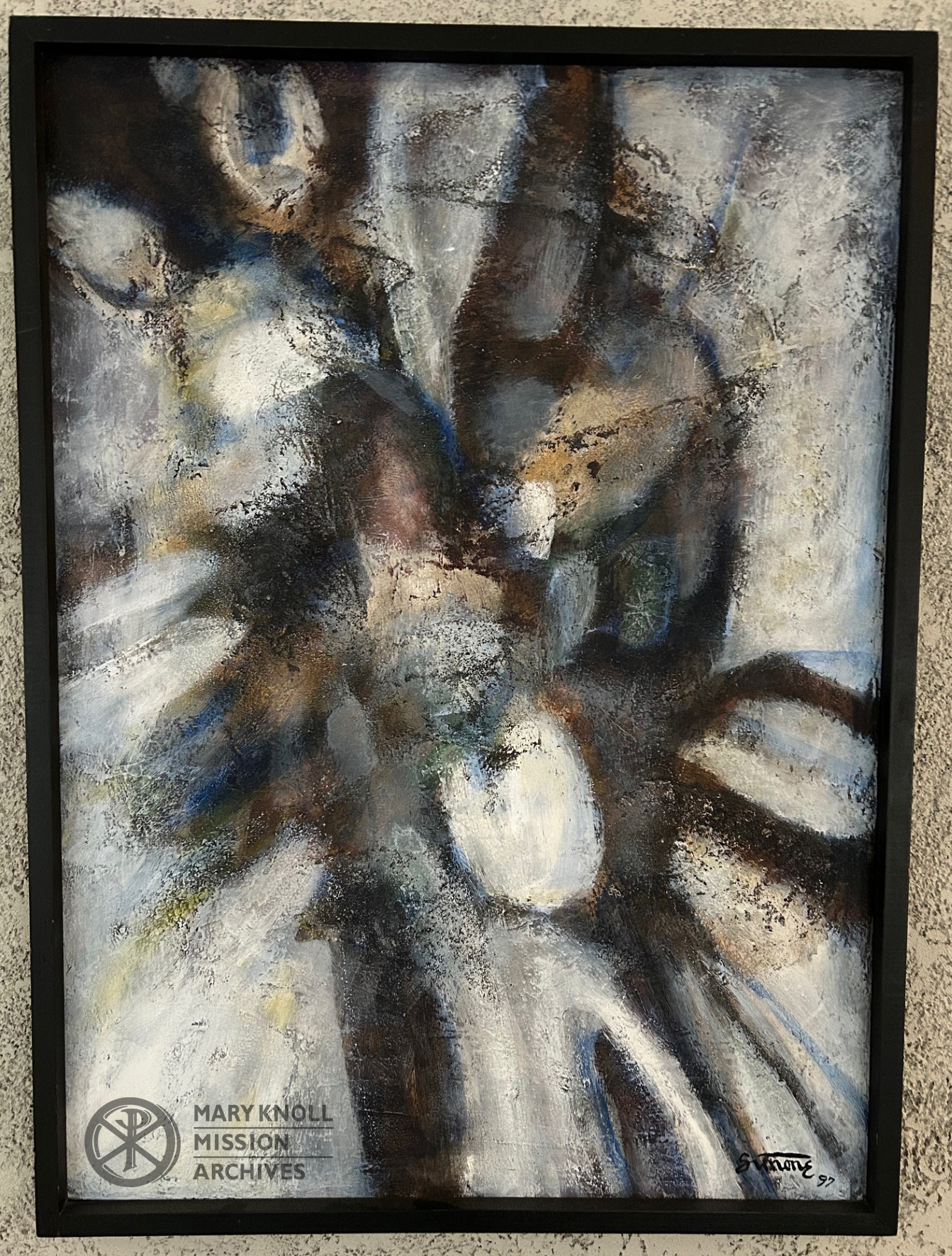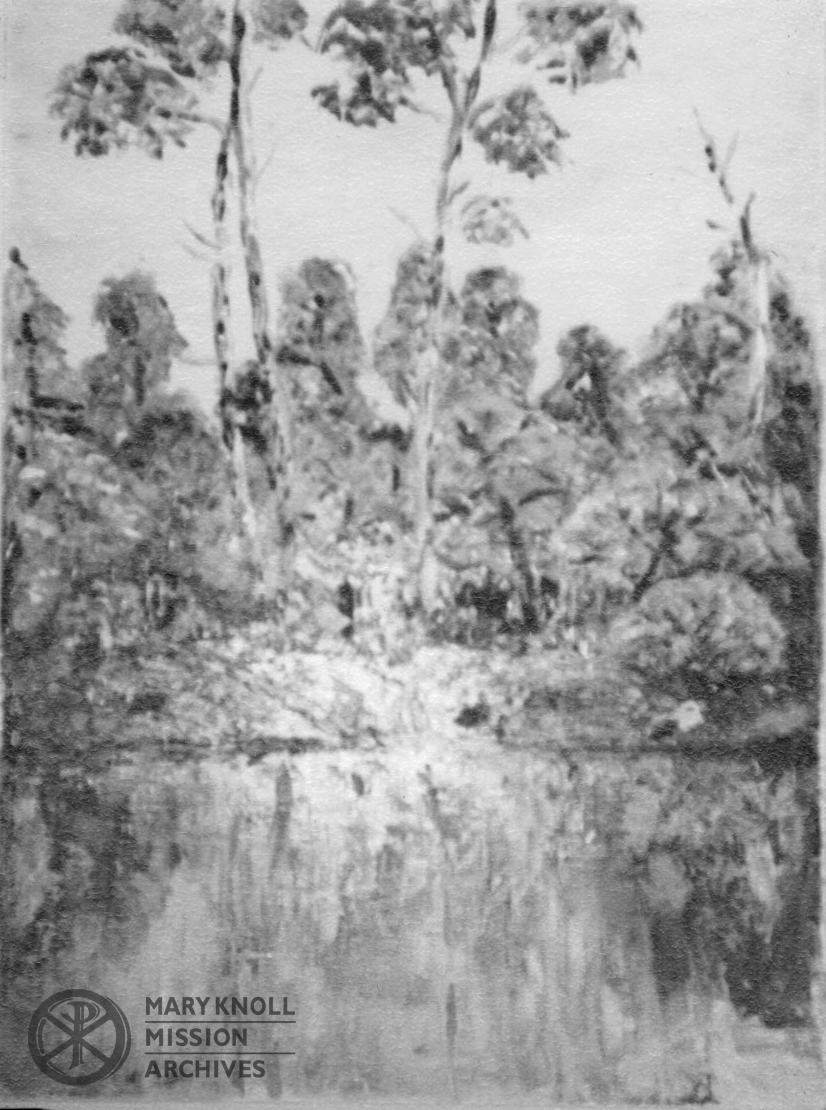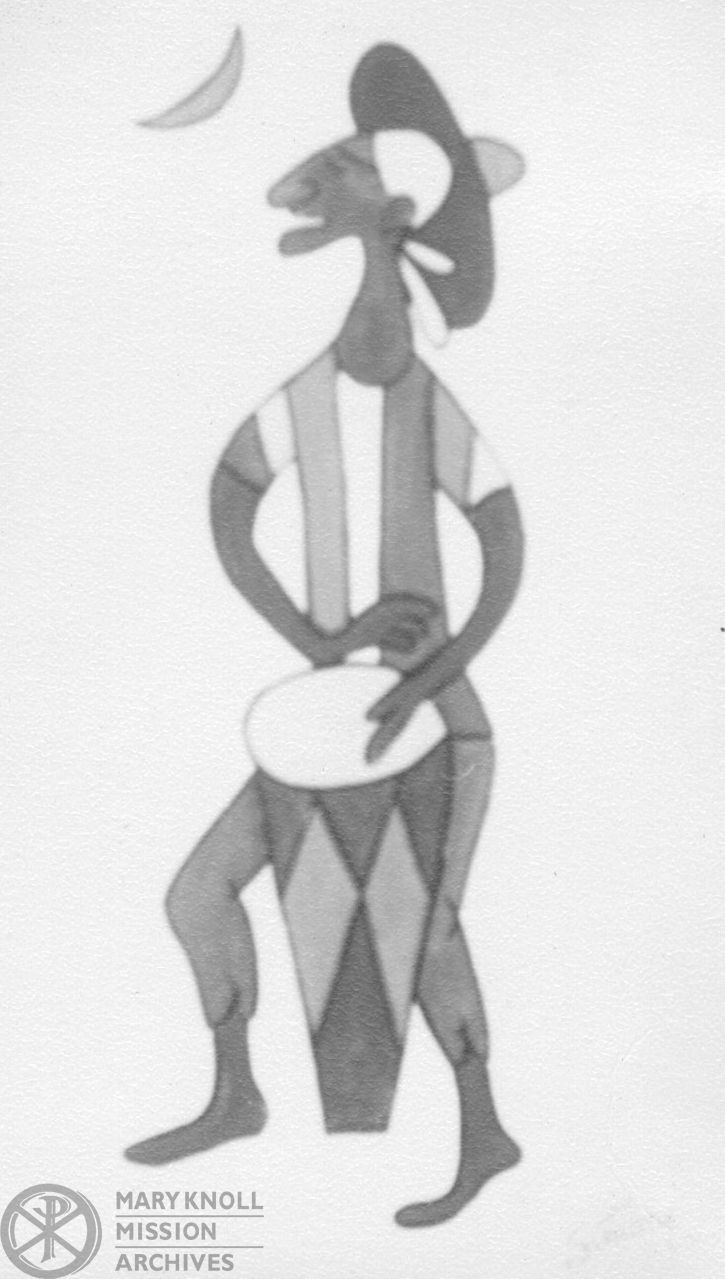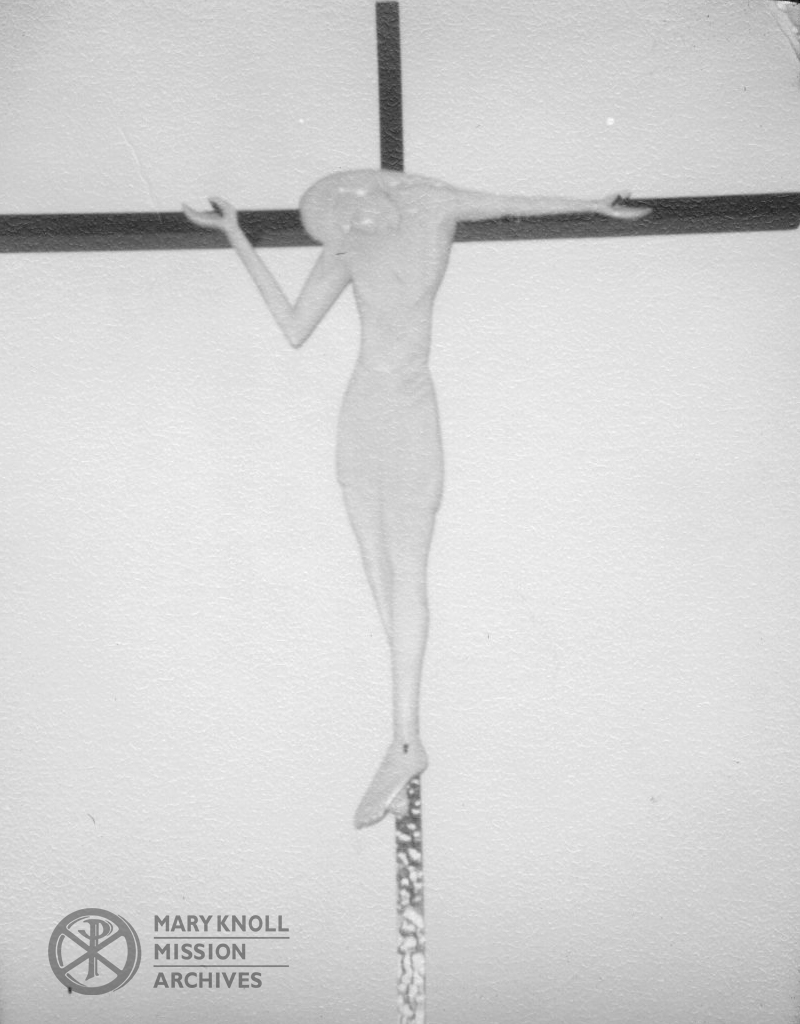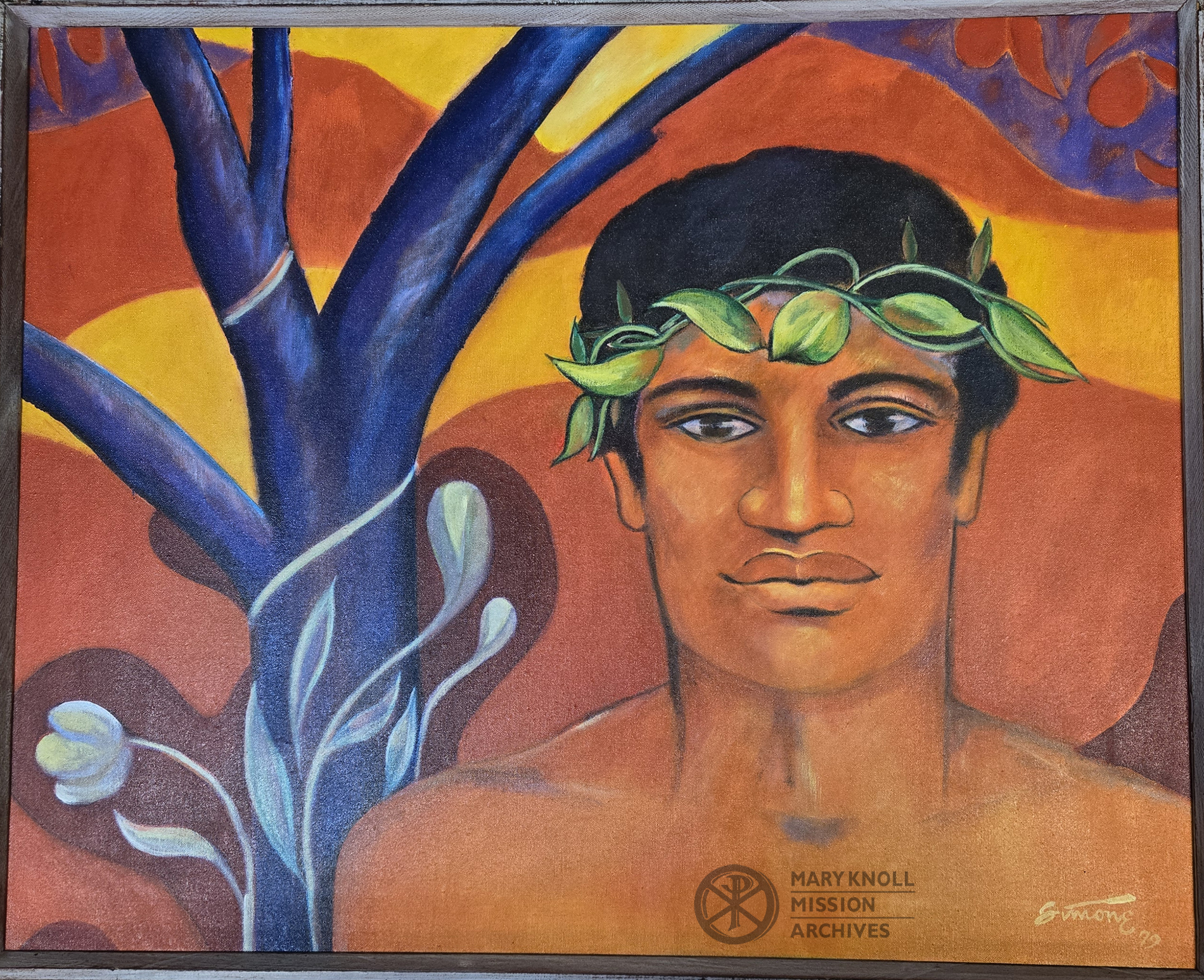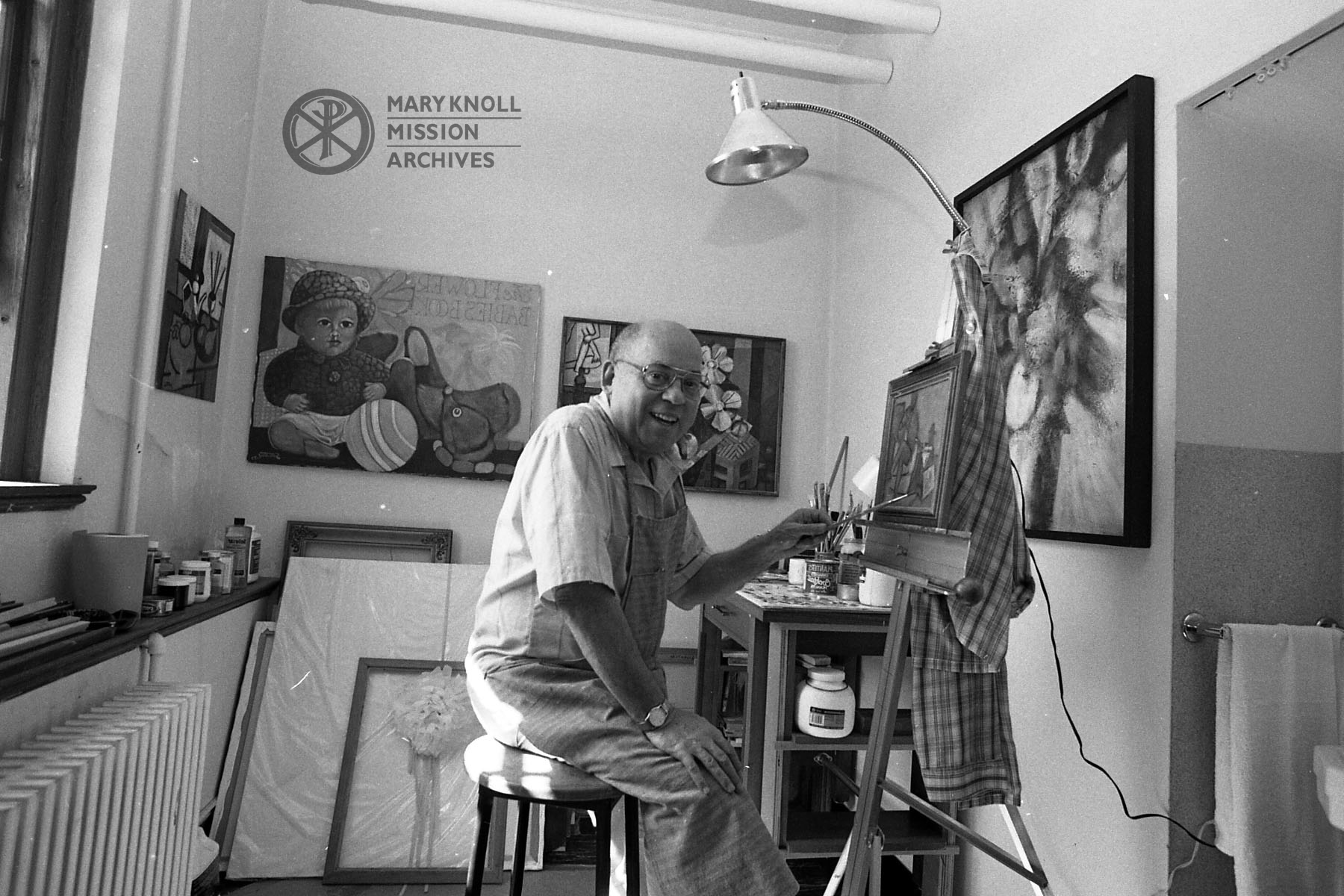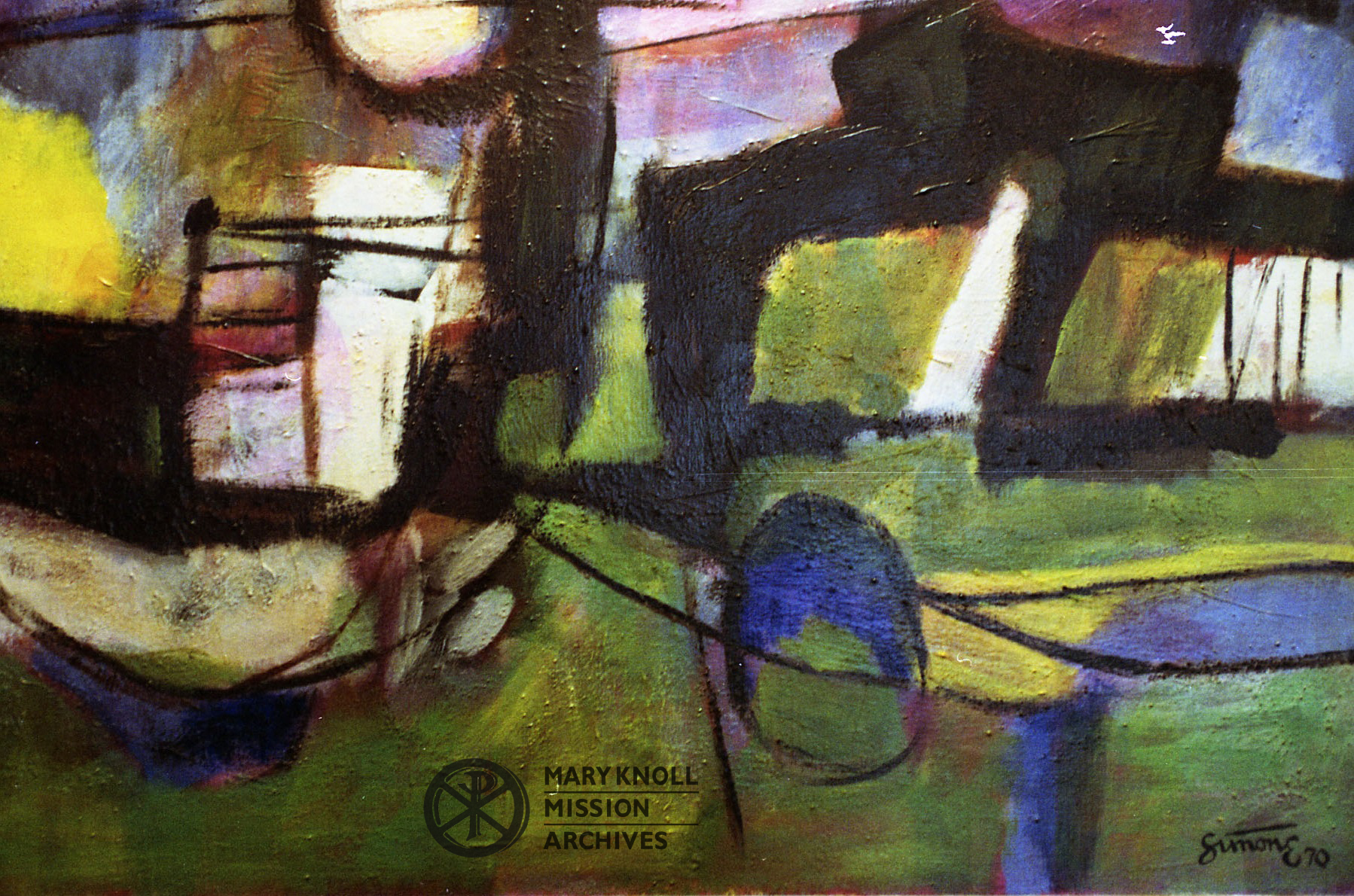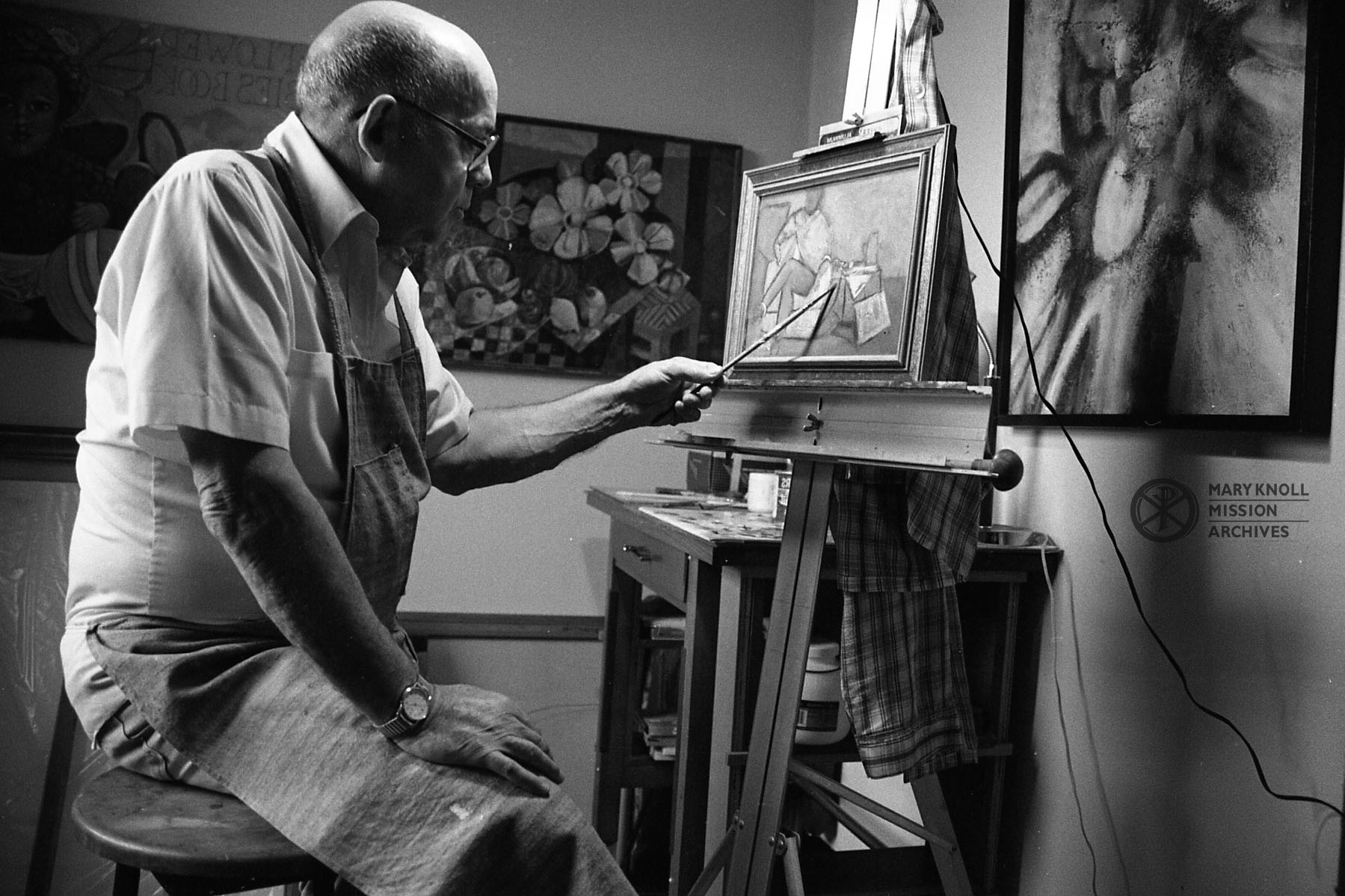Recently I learned that August is American Artist Appreciation Month! Since I previously shared Br. Sebastian Schwartz’s comic work in Asia, I looked for another Maryknoll Artist to celebrate and came across the work of Fr. Michael Simone, MM. He started his art career late, but had a major impact with his paintings and sculptures. Join me as I discuss his background, art inspirations, and showcase some of his artwork!
A Missioner’s Journey
Fr. Michael Simone was born on May 27th, 1926, in a small coal mining town in Pennsylvania. While serving in the Army Air Corps during World War 2, he applied for admission at Maryknoll. After his honorable discharge he studied at the Venard, Maryknoll’s College in Glen Ellyn, Illinois, and the Maryknoll School of Theology. Fr. Simone was Ordained on June 9, 1956. He served in pastoral and educational ministries in Bolivia, Hawaii, and Chile.
In the 1960’s, Fr. Simone decided to pick up art as a hobby at the age of 40 “because he had a knack for it”. This lead to him getting a Master’s in Art History at Notre Dame University, all while teaching at his Alma Mater, Glen Ellyn. His artistic ability was mostly self-taught, though he did study acrylic painting with artist Gustave Likan. Art became the central theme of the latter half of Father Simone’s mission career.
Art and Mission
Fr. Simone operated an Art Studio in Nanticoke, Pennsylvania for many years, where he painted for therapy and pleasure. His artwork would be exhibited across the Northeast, including Binghamton, NY, Berwick, PA, Wilkes Barre, PA, and at the Suraci Art Gallery at Marywood College in Scranton, PA. He would sometimes sell his pieces at these exhibits, donating all proceeds to Maryknoll to support the missions.
Fr. Simone’s Artistic Style was influenced by both famous artist Pablo Picaso and his personal mission experiences. His paintings and sculptures incorporated Latin American and Hawaiian styles and themes. Depending on the subject. he would adapt his style to honor the beliefs of the people he depicted. For example, when painting the Aymara people he served in Bolivia and Chile he did not give them faces, respecting their traditional belief that paintings or photographs take a piece of the soul.
Maryknoll’s artists, including Fr. Simone, were featured in part of the Maryknoll Fathers and Brothers February 2025 Prayer Guild offering for the Jubilee of Artists and the World of Culture.
Please read on for Fr. Simone’s own reflections on the importance, meaning, and impact of art in the world followed by a gallery of images of the artist himself and his work.
My Convictions
Art interprets experience
Human feelings are incommunicable until one learns to communicate through a medium of words, images, or sounds. A painting is an articulation of not only how things look, but how they feel, how they operate, and most importantly, how they go together. It renders experience alive.
A painting is creative action
A painting has no right to take up space in the studio or on the wall unless it dares to express its creator’s response to life.
The job is communicate life
The world does not really need another picture. It needs your vision of how things could be if they were in order. Perhaps nothing else in this life is so ordered, so splendid, and so complete as a work of art. Through your painting, human life is intensified and handed on to others.
The aim of art
A finished work of art beckons us to no course of action. Rather, it teaches us how to be. It does this by communication of one mind to another within the limited, mimic world embodied in a work of art. This created environment is sometimes more real than the natural world since it brings nature down to human scale and is readily understandable and knowable.

